
(opinion-article)
May 13, 2020, Kyiv-Wroclaw. In Ukraine, the cases of infection compose 16,425. The death toll is 435. The lethal rate is approximately 2.6%. In Poland, the indicators of infection are worse a bit: 17,062; 847; 4.9%. On the one hand, in comparison with other countries, the statistics are not so dramatic. On the other hand, I suddenly plunge into a slightly melancholic mood.
From the window I see a white mulberry, a tree that fascinates me; it also was one of the reasons why I settled here. Mulberry is a generous plant, its sweet and healthy berries feed dozens of bird families in spring and summer. Now, however, mulberry there are no leaves, so I see a quiet part of the street where rarely anyone goes to the Park. Weather in Wroclaw is almost summery, the sun is shining, the sky is blue and the air is clean. Today, walking the dog, I saw two magpies, driving the owl from the nest. With the owl, we looked into each other’s eyes from a distance of just a meter. I think animals were also waiting to see what would happen…
For a long time the world was too much for me. Too much, too fast, too loud. So I have no “injury to privacy”, and I don’t suffer from not seeing people. I don’t regret that they closed the theaters, I don’t care that I don’t go around shopping malls. I worry only when I think about all those who lost their jobs.
When I learned that impose preventive quarantine, I felt something like relief – and I know that many people feel the same way, although ashamed to admit it. My introversion, oppressed and exhausted by the dictates of overzealous extroverts, dusted itself off and walked out of the wardrobe.
From the window, I see the neighbor, a business lawyer who recently went to work in the court with the mantle thrown on the shoulder. Now he’s in a baggy tracksuit grappling with the branches in the back yard…
I see a couple of young people walking their old dog, which last winter could barely walk. Her legs are shaking, as they patiently escorted their lovely pet slowly.
A garbage truck with a loud noise takes away the garbage.
Of course, life goes on. But in a completely different rhythm. I cleaned out the closet and removed all read Newspapers in the paper container. I transplanted flowers. I took the bike out of the shop. Get pleasure from cooking.
In memory persistently brings forth images of childhood, when time was much more and was a “waste”, spend hours looking out the window, watching the ants, lying under the table, imagining that it’s an arch. Or read the encyclopedia.
Aren’t we back to a normal rhythm of life? What if no virus is a violation of the rules, but just the opposite – the troubled world before his appearance was abnormal?
The virus has reminded us of what we so passionately denied: we are fragile creatures, created from the most delicate cloth. We die, we are mortal.
That we are not separate from the world of our “humanness” and uniqueness, but the world is kind of a great network where we are connected with other beings of the invisible threads of dependency and influence.
We depend on each other, and despite where we come from, what language we speak, what color our skin is, we all hurt the same, we are still afraid and are also dying.
It makes us understand that, no matter how weak or vulnerable we feel, there are people around us who are weaker and need help. It reminds us how vulnerable our parents and grandparents and how they need our care. It shows us that our feverish mobility threatens the world. And it asks us a question that we ourselves rarely have the courage: what are we actually looking for?
Fear of the disease led us away from this looped path and reminded us of the existence of nests from which we came and where we feel safe. And no matter how big travelers we were, in situations like this we will always return home.
We discovered the sad truth: at the time particular risk thinking back to the categories of closeness and exclusivity in relation to Nations and borders. In this difficult period it became clear how weak the idea of the European community in practice.
The Union refused the common struggle, delegating decisions during the crisis of the national States. I think the closure of national boundaries the biggest failure of this unfortunate time – the old selfishness returned, together with the distinction between “your” and “alien”, and that is exactly what we fought in recent years, hoping that this will never happen again.
Fear of the virus automatically provoked the simplest atavistic beliefs that blame outsiders and they always somehow are a threat. In Europe the virus from somewhere, it is not ours, he is a stranger. In Poland, all who returned from abroad, become suspects.
The wave of closed borders and monstrous queues at the crossing points was probably a shock to many young people. The virus reminded us that boundaries exist and they are firm.
I also fear that the virus will remind us of another old adage about how we are not equal. Some of us will fly in a private plane to the house on the island or retreat to the forest, while the rest will remain in the cities will control the power plants and water stations. Others will risk their health, working in shops and hospitals. Someone will work on epidemics, and someone will lose everything earned in life.
The coming crisis may undermine the principles that seemed to us to be stable; many countries will not cope with this, and in the face of their decay will arise a new order, as often happens after a crisis. We sit at home, read books and watch TV shows, but in fact, we are preparing for a great battle for a new reality that we cannot even imagine, but we realize that nothing will be the same as before. The situation of compulsory quarantine and isolation of families at home can make us realize that we would not like to admit: the family is exhausting us; the marriage bonds have long disappeared. Our children will quarantine with Internet addiction, and many of us will realize the senselessness and futility of the situation in which mechanics and inertia lie.
What if the number of homicides, suicides, and mental illness increases?
We are witnessing a civilizational paradigm — we are the crown of creation, we can do everything, the world belongs to us — which has shaped us over the past two hundred years, disappears like smoke.
New times are coming.

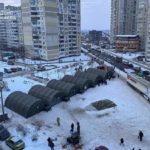
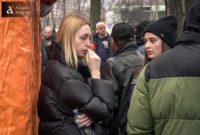

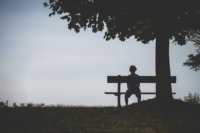



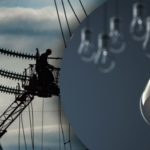














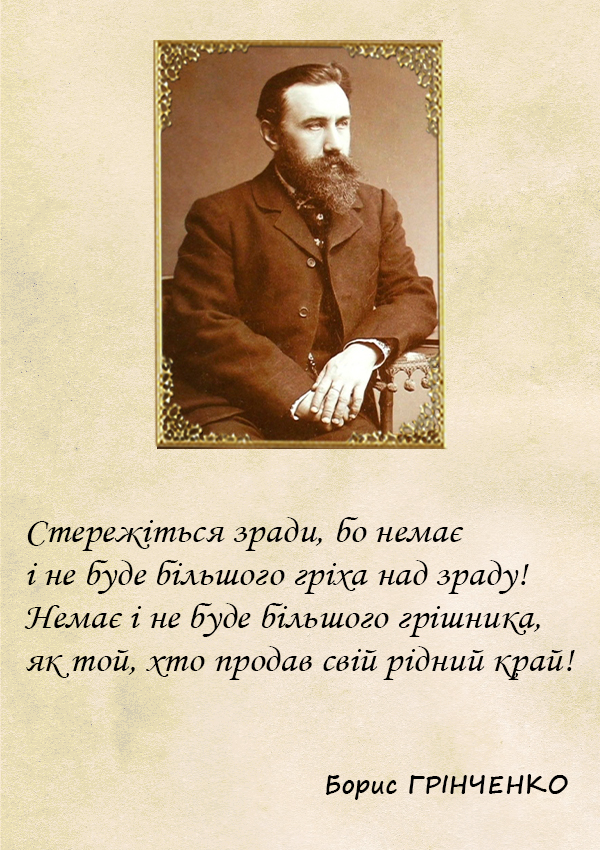



















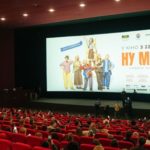














Залишити відповідь